
People
The Communication Neuroscience Lab, led by Emily Falk, Ph.D., is a supportive and highly-collaborative group of interdisciplinary researchers focused on communication that increases human health and happiness.
We believe that our science is better with a diverse team. We embrace and encourage our lab members’ differences in age, color, disability, ethnicity, family or marital status, gender identity or expression, language, national origin, ability, political affiliation, race, religion, sexual orientation, socio-economic status, veteran status, and other characteristics that make our lab members who they are.
Director
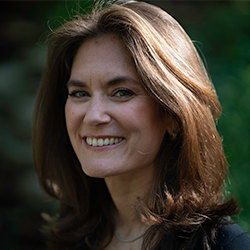
Emily Falk
emily.falk@asc.upenn.edu
Office: 328 ASC
Emily Falk (she/her) is a professor of Communication, Psychology, Marketing, and OID (Operations, Information, and Decisions) at the University of Pennsylvania, where she is also the director of the Communication Neuroscience Lab, the vice dean of the Annenberg School for Communication, and the director of the Climate Communication Division of the Annenberg Public Policy Center. Falk is an expert in the science of attitude and behavior change. Her research uses tools from psychology, neuroscience, and communication to examine what makes messages persuasive, why and how ideas spread, and what helps people get on the same page when communicating. Her work has been widely covered in the popular press in the U.S. and abroad (e.g., New York Times, Washington Post, BBC, Forbes, Scientific American, and others), and she has consulted for and collaborated with major corporations, NGOs, and the government. Her research has been recognized by numerous awards, including early career awards from the International Communication Association, the Society for Personality and Social Psychology Attitudes Division, a Fulbright grant, Social and Affective Neuroscience Society, a DARPA Young Faculty Award, and the NIH Director’s New Innovator Award. She was named a Rising Star by the Association for Psychological Science. She received her bachelor’s degree in Neuroscience from Brown University, and her Ph.D. in Psychology from the University of California, Los Angeles.
Research Scientists
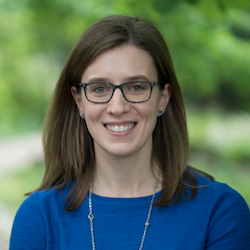
Nicole Cooper
Nicole (she/her) is the Managing Director of Research at the Communication Neuroscience Lab. She is interested in understanding the links between brain activity and health-related behaviors and outcomes. Nicole is currently the research director for an NCI-funded R01 project examining how exposure to point-of-sale tobacco marketing causally affects cigarette cravings and smoking, and neural reactivity to smoking cues. She received her B.S. from Brandeis University and her Ph.D. in Neuroscience from the University of Pennsylvania.
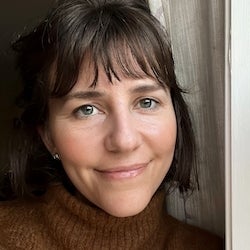
Dani Cosme
danielle.cosme@asc.upenn.edu
https://dcosme.github.io/
Dani (she/her) is a Senior Researcher at the Communication Neuroscience Lab and Scientific Director of the Climate Communication Division at the Annenberg Public Policy Center. Her research focuses on cognitive and motivational factors that support individual and collective behavior change. The overarching goal of Dani’s research is to use insights from neuroscience, psychology, and communication to design and evaluate translational interventions that facilitate behavior change and improve health and well-being across the lifespan. She received her B.S. from Chapman University, her M.S. from Stockholm University (Sweden), and her Ph.D. in Psychology from the University of Oregon.
Postdoctoral Fellows
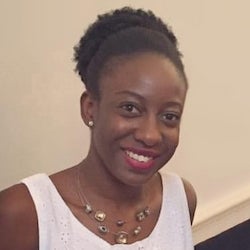
Laetitia Mwilambwe-Tshilobo
lmwilambwe@asc.upenn.edu
https://www.laetitiamwilambwe.com/
Laetitia Mwilambwe-Tshilobo (she/her) is a postdoctoral researcher at the Annenberg School for Communication. The overarching goal of her research program is to provide a mechanistic understanding of how loneliness affects brain function, and how the brain supports human sociality. Prior to joining Annenberg her research focused on understanding how the experience of loneliness influences the functional organization of large-scale brain networks and how this organization differs across the adult lifespan. Currently, her research explores how the qualities of people’s social networks (e.g., closeness) influences the relationship between loneliness and brain function. She received her B.A. in neuroscience from the College of Wooster, a M.Sc. in neuroscience from the University of Hartford, a M.A. in developmental psychology from Cornell University, and a Ph.D. in neuroscience from McGill University.
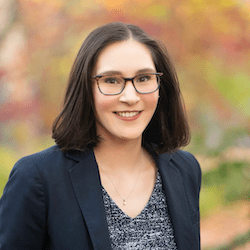
Allie Sinclair
alliesi@sas.upenn.edu
https://alyssasinclair.com/
Alyssa (Allie) Sinclair is the Joan Bossert Post-Doctoral Research Fellow at the Penn Center for Science, Sustainability and the Media, and the Annenberg Public Policy Center. She collaborates with Emily Falk and others at Penn to develop interventions to change beliefs and behaviors pertaining to climate change and health. Allie draws on her expertise in learning, memory, and motivation to design interventions that are informed by cognitive neuroscience. Her research interests include knowledge and belief updating, learning from error, risk communication, information seeking and sharing, and misinformation correction. To conduct this interdisciplinary research, Allie uses a combination of in-lab and online behavioral studies, functional neuroimaging, and large-scale online field studies. Prior to joining PCSSM, Allie completed a PhD in Psychology & Neuroscience at Duke University and an Honours BSc in Experimental Psychology at the University of Toronto.
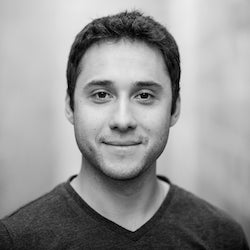
Diego Reinero
Diego Reinero is a MindCORE Postdoctoral Research Fellow at the University of Pennsylvania. He investigates how people's moral and political views change through conversations and social networks, and why such changes can be so difficult. By integrating insights from intergroup relations, social identities, communication and persuasion, social norms, and network theory, Diego aims to understand and predict moral and political attitude change at the individual and collective level. He employs a wide range of methods including surveys, real conversation and social network experiments, and big data analytics. Prior to joining Penn, Diego was a Presidential Postdoctoral Research Fellow at Princeton University. Diego completed his Ph.D. in social psychology at New York University and holds a B.S. in both psychology and business from Skidmore College. You can find Diego on Twitter @diegoareinero.
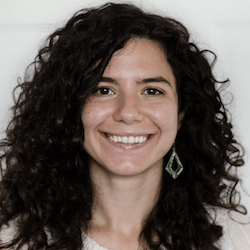
Ovidia Stanoi
Ovidia Stanoi (she/her) is a Civic Science Fellow in the lab and the Climate Action and Resiliency Postdoctoral Fellow at PCSSM and APPC. Her research is twofold. First, she studies how people regulate their emotions, perceptions, and behaviors to build social connections and to achieve their social goals. Second, she examines the neural, behavioral, and network mechanisms through which social relationships impact wellbeing and health. Across all her studies, she capitalizes on the heterogeneity typical of psychology samples to understand when and for whom certain relationships emerge. In her work, Ovidia uses both laboratory and in-the-wild studies that leverage recently developed techniques in functional MRI, experience-sampling, multilevel modeling, and social network methods. As a postdoctoral fellow at UPenn, she will apply her research to the study of climate communication, action, and resilience in collaboration with Dr. Michael Mann in PCSSM. Before joining UPenn, Ovidia completed a Ph.D. in Psychology at Columbia University in the SCAN Lab with Dr. Kevin Ochsner, a M.A. in Clinical Psychology at Teachers College, Columbia University in the Loss, Trauma and Emotion Lab with Dr. George Bonanno, and a B.A. in International Relations at Brown University.
Graduate Students
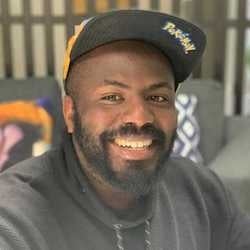
Taurean Butler
Taurean (he/him) is a doctoral student at the University of Pennsylvania studying Psychology. He explores the intersection of psychology, network science, and platform technologies to answer questions about how diverse communities form, collaborate, and innovate to solve shared challenges. His current research examines if emotion regulation ability supports the development of diverse peer groups. He is also interested in how people use identity to signal authority in social media debate. Prior to joining the lab, he completed his BA in Human Biology at Stanford, his MA in Psychology at Stanford University, and has worked various roles in the digital technologies sector as a product manager, strategist, and most recently as Director of Innovation at Technology Futures Lab in New Zealand.
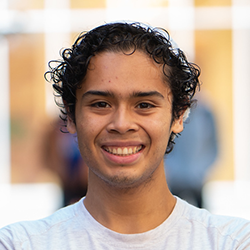
Christian Benitez
Christian is a PhD student in Psychology. He received his Bachelor’s Degree in Neuroscience and Psychology from Duke University. He is interested in individual differences in decision making, specifically the role that socioeconomic factors influence this process.
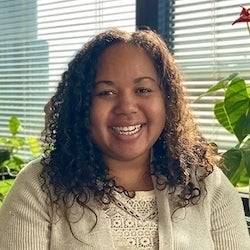
Thandi Lyew
Thandi is a doctoral student at the Annenberg School for Communication. She is interested in the ways in which messaging can target the cognitive barriers (i.e. uncertainty intolerance, discounting, affective predictions) that influence decisions regarding health and sustainability. She uses a mixed-methods approach, including fMRI, actigraphy, behavioral tasks, and standardized assessments. Prior to joining the lab, she completed her B.A. in Psychology at Florida International University, and worked as a Clinical Research Coordinator in several research labs within the Department of Psychiatry at the University of Pittsburgh.
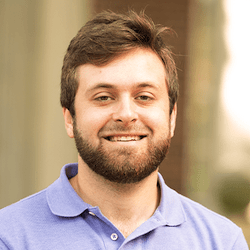
Ben Muzekari
benjamin.muzekari@asc.upenn.edu
Ben (he/him) is a doctoral student at the Annenberg School for Communication. He is interested in how we can induce motivational factors to facilitate positive behavior change and improve decision-making related to health and the environment. Prior to joining the lab, Ben received a bachelor’s degree in Psychology at Temple University, and then worked as a lab manager at Duke University, where he studied the development of real-time fMRI neurofeedback interventions aimed to enhance motivation and reward sensitivity, the maladaptive qualities of perfectionism, and college-campus eating behavior.
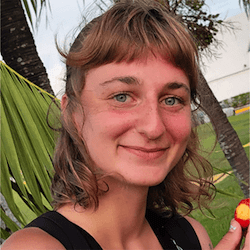
Kirsten Lydic
Kirsten (she/her) is a doctoral student at the Annenberg School for Communication at the University of Pennsylvania. Her work lies at the intersection of cognitive science and community-engaged social research, using mixed methods to (a) characterize and predict processes of collective action, and (b) develop intervention tools to promote civic and political engagement. She is interested in both online and offline civic/political behavior, and in how they intersect. She is also interested in the political economy of collective action and democracy. Her work currently focuses on the psychological, social, and structural processes underlying climate action and inaction. Before joining the Annenberg School for Communication, Lydic previously worked as a researcher and lab tech for four years in the Brain and Cognitive Sciences department at the Massachusetts Institute of Technology. She holds a Bachelor of Arts from Hampshire College.
Research Administration Staff
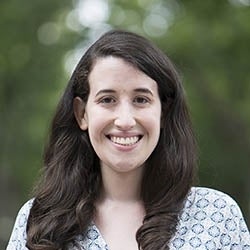
Alexandra (Ally) Paul
Ally (she/her) is the Associate Director of Research for the CN Lab at the Annenberg School for Communication. After graduating from Swarthmore College with a B.A. in Psychology, she spent two years at Penn serving as lab manager for both the CN Lab and the Peace and Conflict Neuroscience Lab. Her research has examined the impact of point-of-sale tobacco marketing, in addition to behavioral interventions aiming to promote healthy choices, combat Islamophobia, increase civic engagement, and facilitate patients’ comprehension and retention of medical information.
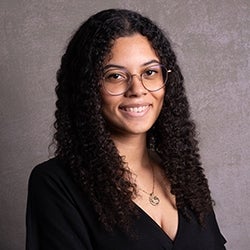
Omaya Torres-Grillo
Omaya (she/her) is a Senior Research Coordinator and a joint research fellow with CNLab and the Netter Center for Community Partnerships. She graduated with her B.A. in Health and Societies at the University of Pennsylvania and her Master of Public Health at the Perelman School of Medicine. She also has a background in visual arts, which she hopes to combine with her passion for public health through exploration of visual health communication strategies. Her current research projects include the GeoScan Smoking Study and various community engagement projects under the Climate Communication Division. She hopes to facilitate public engagement with the lab's research by using visual health communication to make the research more broadly accessible.
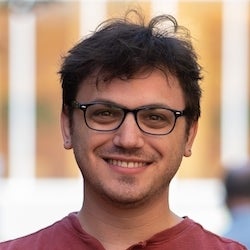
Anthony Resnick
Anthony is a Senior Research Coordinator for the CN Lab. Anthony graduated from Temple University with a B.S. in Neuroscience, and has spent the past few years working in various research labs around the country investigating topics such as working-memory in different populations of children, generalization and categorization, and employing different biometric techniques to investigate decision making.
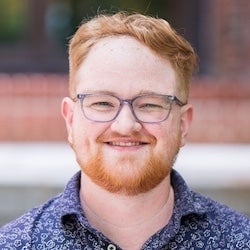
Evan Wilkerson
Evan (he/him or they/them) is the administrative coordinator for the CN Lab. He graduated from Smith College with a B.A. in Music. He has previous experience in nonprofit administration, LGBTQ advocacy and education, and psychological research on the efficacy of PTSD interventions.
Undergraduate Research Assistants
- Olivia Nicastro
Lab Alumni
Former Research Directors & Research Scientists
- Yoona Kang is an Assistant Professor in the Department of Psychology at Rutgers University – Camden.
- Rebecca Martin is a Senior Research Fellow in Consumer Response at the Consumer Financial Protection Bureau.
- Matt O'Donnell is a Lecturer for the Annenberg School for Communication and has continued affiliation with the Communication Neuroscience Lab.
Former Postdoctoral Fellows
- Emile Bruneau was the Director of the Peace and Conflict Neuroscience Lab at the University of Pennsylvania.
- Shannon Burns is an Assistant Professor of Psychological Science and Neuroscience at Pomona College.
- Hang-Yee Chan is a Lecturer in Marketing at King’s College London.
- Jason Coronel is an Associate Professor in the School of Communication at The Ohio State University.
- Bruce Doré is an Assistant Professor in Marketing at the Desautels Faculty of Management at McGill University.
- Boaz Hameiri is a Senior Lecturer and the Head of the Program in Conflict Management and Mediation at Tel Aviv University and a Human Development Lab Researcher at the Boris Mints Institute.
- Agnes Jasinska is a Research Data Specialist at the Digital Curation Centre at the University of Edinburgh.
- Nina Lauharatanahirun is an Assistant Professor of Biomedical Engineering and Biobehavioral Health at Pennsylvania State University.
- Bradley Mattan is a Senior UX Researcher at Vivid Seats.
- Samantha Moore-Berg is an Assistant Professor in the Department of Psychology at the University of Utah.
- Prateekshit "Kanu" Pandey is an Assistant Professor in the Department of Communication at the University of Californa, Santa Barbara.
- Teresa Pegors is an Assistant Professor in the Department of Psychology at Azusa Pacific University.
- Ralf Schmälzle is an Associate Professor in the Department of Communication at Michigan State University.
- Steven Tompson is a Data Science Manager at Spotify.
Former Graduate Students
- Jeesung Ahn is a Postdoctoral Fellow at Stanford University with Dr. Leanne Williams.
- Mary Andrews is an IDEA Fellow in Health Disparities and Critical Health at Stony Brook University's School of Communication and Journalism and Alda Center for Communicating Science.
- Joseph Bayer is an Associate Professor in the School of Communication and the Translational Data Analytics Institute at The Ohio State University.
- Elisa Baek is an Assistant Professor in the Department of Psychology at the University of Southern California.
- Josh Carp is a Site Reliability Engineer at Cockroach Labs.
- Chris Cascio is an Associate Professor in the School of Journalism and Mass Communication at the University of Wisconsin-Madison.
- Darin Johnson is a Research Assistant Professor and Bridge to Faculty Fellow at the University of South Carolina's School of Journalism and Mass Communications.
- Mia Jovanova is a Scientific Director at of the CSS Health Lab at the University of St. Gallen and ETH Zurich, and a Core Director at the Centre for Digital Health Interventions.
- Minji Kim is an Assistant Professor of Health Promotion, Education, and Behavior in the Arnold School of Public Health at the University of South Carolina.
- Elissa Kranzler is a Senior Scientist in Health Campaign Evaluation at Fors Marsh Group.
- Jiaying Liu is an Associate Professor in the Department of Communication at the University of Californa, Santa Barbara.
- Kristin Shumaker is a Senior Research Insights Analyst at Comcast Advertising.
- Prateekshit "Kanu" Pandey is an Assistant Professor in the Department of Communication at UC Santa Barbara.
- Jacob Pearl is a Senior Data Scientist at Dick's Sporting Goods
- Rui Pei is a Postdoctoral Scholar at the Stanford Social Neuroscience Laboratory in the Department of Psychology at Stanford University.
- Keana Richards is a Quantitative User Experience Researcher at Google.
- Christin Scholz is an Assistant Professor at the Amsterdam School of Communication Research at the University of Amsterdam.
Former Research Coordinators & Managers
- Liz Beard (former research coordinator/lab manager) received her Ph.D. in Decision Neuroscience at Fox School of Business at Temple University and is now a Postdoctoral Research Fellow at the Wharton Neuroscience Initiative and Wharton Analytics.
- Melis Çakar (former research coordinator/lab manager) is pursuing a Ph.D. in Neuroscience at the University of California, Los Angeles.
- José Carreras-Tartak (former project manager) received his MBDS from the University of Pennsylvania and is now a Research Associate in the Military Workplace Climate Division at Fors Marsh Group.
- Susan Hao (former research coordinator) received her Ph.D. in Cognitive Neuroscience from the University of California, Berkeley and is now part of the Responsible AI team at Google Research.
- Lynda Lin (former research coordinator/lab manager) received her Ph.D. in Psychology from the University of Illinois Urbana-Champaign and is now a Data Scientist at Getty Images.
- Silicia (Lolo) Lomax (former research coordinator) received her MPH from the University of Pennsylvania and is now a Health Policy Director at Waxman Strategies.
- Steven Mesquiti (former research coordinator/lab manager) is pursuing his Ph.D. in Psychology at Princeton University.
- Farah Sayed (former research coordinator) is pursuing her M.D. from the University of Cincinnati College of Medicine.
- Frank Tinney (former research coordinator/lab manager) received his M.D. from Wayne State University and completed his fellowship in Abdominal Transplant Surgery at John Hopkins Medicine.
Former Research Staff
- JP Obley (former programmer for the CN Lab) is a Founding Engineer at Parrot AI.
- Nick Wasylyshyn (former research associate for the CN Lab) is a Product Manager at Vetted.
Former Research & Admin Assistants
Rodin Bantawa, Simon Rodriguez Cabrera, Nicholas Dinh, Destiny Dennis, Gabby Culbreath, Sam Costello, Joyce Davis, Ana Acevedo, Esther Fleischer, Anna Waldzinska, Gabrielle Rosenzweig, Grace Ringlein, Hadeel Saab, Kim Siew, José Carreras-Tartak, Lizette Grajales, Meredith Mitchell, Susan Zhang, Cristine Oh, Kinari Shah, Becky Lau, Alison Sagon, Gabrielle Cheng, Larisa Svintsitski, Caroline Meuser, Jackie Cho, Lauren Wilson, Megan Black, Alexander Riccio, Julia Shteyngardt
Former MindCORE Summer Fellows (more info here)
Denise Cortés-Cortés (University of Puerto Rico), Arden Spehar (Vassar College), Carlos Santana (Pomona College), Zora Woolfolk (University of Kentucky)
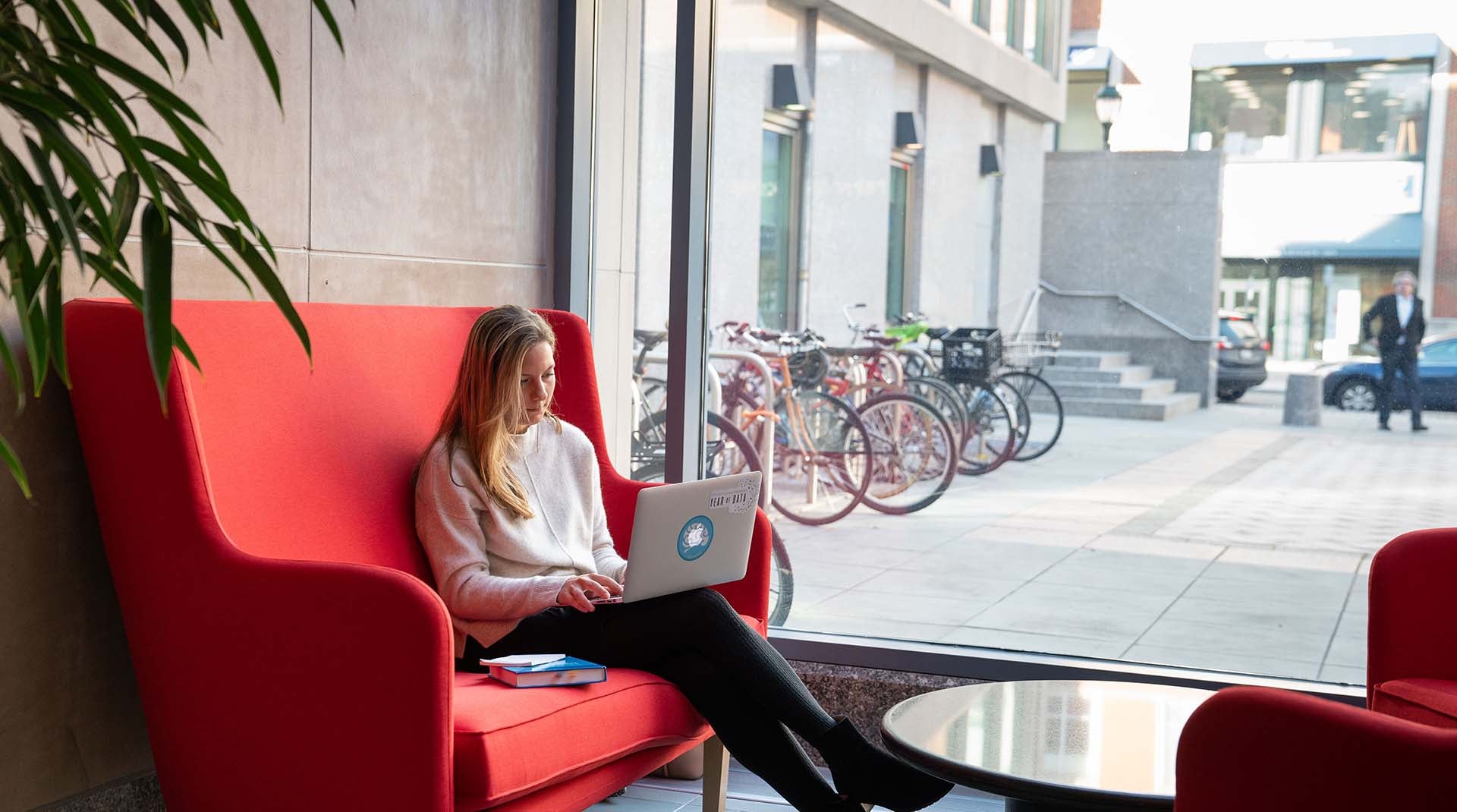
Interested in joining our lab?
Learn more about joining our lab as a postdoctoral fellow, graduate student, or undergraduate researcher.
